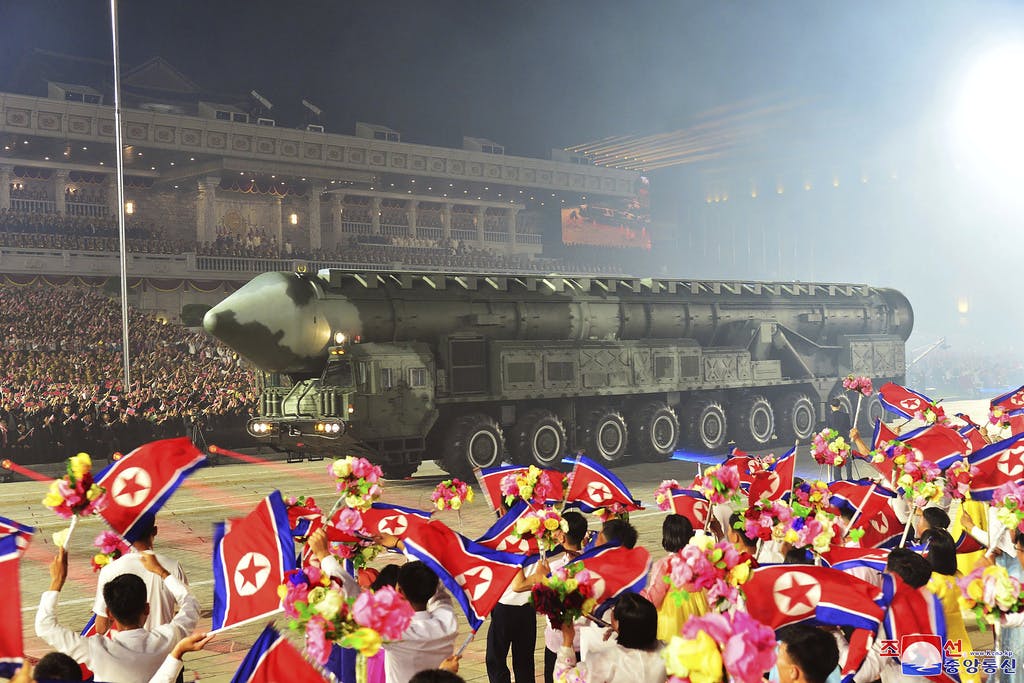
A Tale of Two Harvards
By THE NEW YORK SUN
|Anti-war analysts, oblivious to this week’s show of force at Pyongyang, back legislation that’s widely seen as leading to withdrawal of America’s 28,500 troops from South Korea and undermining the longstanding Washington-Seoul alliance.

Already have a subscription? Sign in to continue reading

By THE NEW YORK SUN
|
By BENNY AVNI
|
By GEORGE WILLIS
|$0.01/day for 60 days
Cancel anytime
By continuing you agree to our Privacy Policy and Terms of Service.